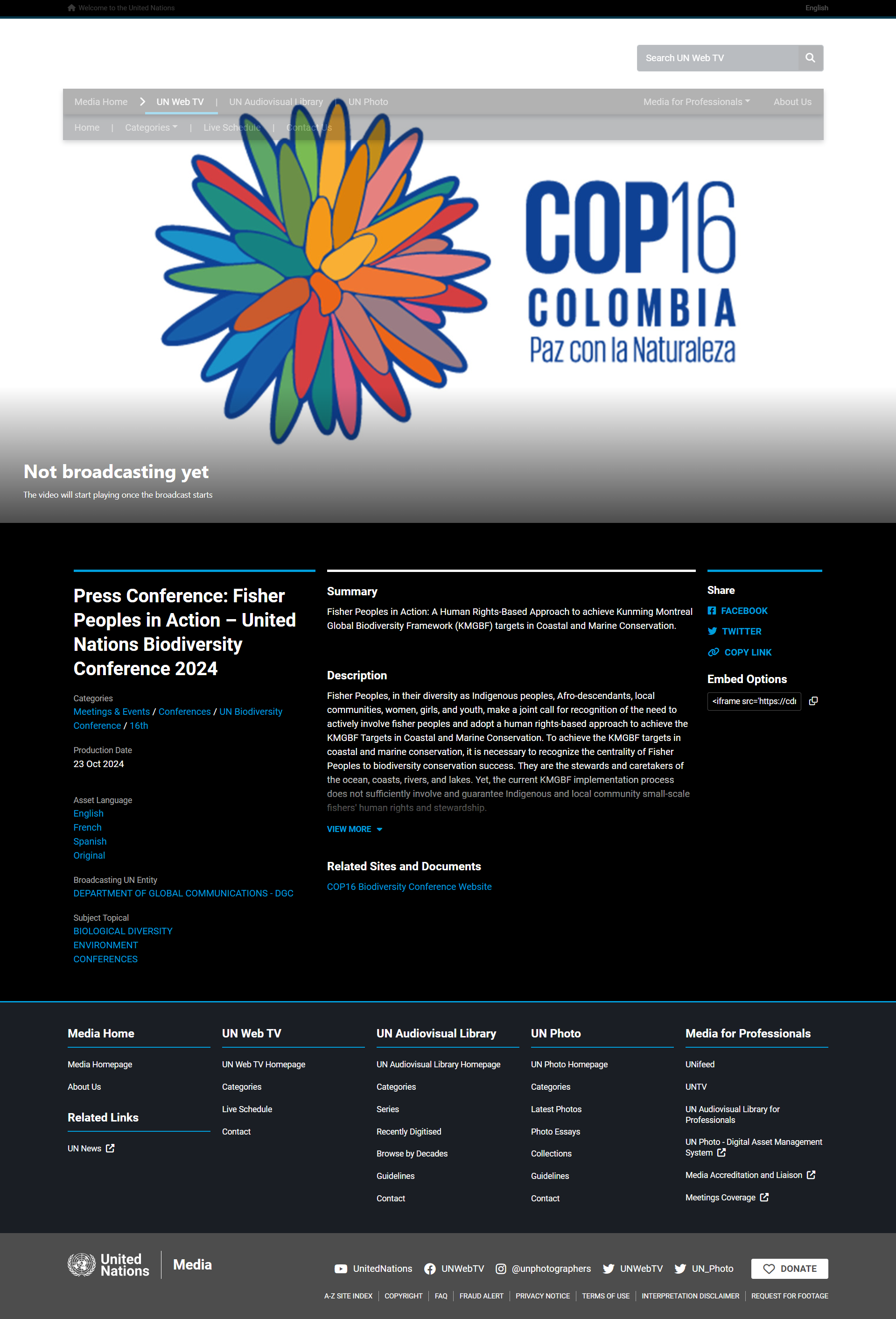
Water covers 70 percent of the Earth. Marine and freshwater environments sustain an abundance of life in its spectacular diversity. Through our history, small-scale fishing communities have interacted and depended on these living resources. A threat to aquatic environments is a danger to artisanal fishers.
Their protection and stewardship are essential to the communities and cultures they sustain. This relationship is a framework to manage conflicts and improve the quality of life and livelihood of small-scale fishers. It was recognized in the UN Convention on Biological Diversity.
Governments increasingly designate marine protected areas (MPAs) for conservation and management. This legal instrument does help but its implementation has raised serious concerns. Target-driven expansion of MPAs is fixated on quantitative goals. This has hit the rights, livelihoods and sustainable use practices of small-scale fishing communities. MPAs—created often in a non-consultative and non-participatory manner—have focused on regulating/restricting their fisheries, failing to recognize their sustainable livelihoods, culture and survival.
It is imperative that protection efforts are grounded in principles of sustainable use. That their processes are inclusive and recognize</b< traditional local systems of knowledge and governance, building upon them. Artisanal fishers must be the frontline of marine biodiversity conservation. There is an urgent need for systematic improvements on all such matters.
A range of ICSF’s initiatives highlight the social and political dimensions of conservation. The importance of livelihoods of poor and vulnerable communities, of their participation and consultation. The co-management of resources by fishing communities, based on a human rights approach to conservation.

Fisher Peoples in Action: A Human Rights-Based Approach to achieve Kunming Montreal Global Biodiversity Framework (KMGBF) targets in Coastal and Marine Conservation. Description: Fisher Peoples, in their diversity as Indigenous peoples, Afro-descendants, local communities, women, girls, and youth, make a joint call for recognition of the need to actively involve fisher peoples and adopt a human rights-based approach to achieve the KMGBF Targets in Coastal and Marine Conservation. To achieve the KMGBF targets in coastal and marine conservation, it is necessary to recognize the centrality of Fisher Peoples to biodiversity conservation success. They are the stewards and caretakers of the ocean, coasts, rivers, and lakes. Yet, the current KMGBF implementation process does not sufficiently involve and guarantee Indigenous and local community small-scale fishers’ human rights and stewardship. For more details, please visit: https://webtv.un.org/en/asset/k15/k15icg47f5
Women4Biodiversity has been working to advance gender considerations in the work of the United Nations Convention on Biological Diversity, including co-convening the CBD Women’s Caucus to share, collect, contribute and...
This brief presents an updated analysis and recommendations related to the headline indicators reflecting the outcome of the Report of the Expert Workshop on the Monitoring Framework for the Post-...
The “Chiang Mai Workshop Report” provides a comprehensive account of the workshop that took place on 15 May – 20 May 2023 in Chiang Mai, Thailand. This report offers insights,...
This guide is compiled with a specific purpose: to provide additional support and concrete examples for Parties and decision-makers, non-state actors, and rights holders on how to meet this commitment...
This updated compilation of decisions from COP 1 to COP15 related to gender considerations in the CBD is a crucial step towards mainstreaming gender equality in biodiversity conservation efforts. This...
The 2024 Living Planet Index (LPI) update for Migratory Freshwater Fishes unveils a startling 81% decline in monitored populations of freshwater migratory fishes from 1970 to 2020. This distressing trend...
Mangroves are critical ecosystems, bridging land, freshwater, and sea. They host tremendous diversity and protect and provide for countless coastal communities around the world. This 2024 edition of The State...
Across the Western Indian Ocean, many vulnerable social groups largely depend on marine resources for their food security and livelihoods. The Swedish Agency for Marine and Water Management (SwAM) and...
Acknowledging that Indigenous Peoples and local communities (IPLCs) hold vast knowledge about coastal-marine ecological systems which is often overlooked in marine/maritime spatial planning (MSP) initiatives, this publication aims to assist...
Access to resources, opportunity and choice, power and voice, peace and conflict influence the evolution of poverty and gender roles in a community. These are further impacted by political and...